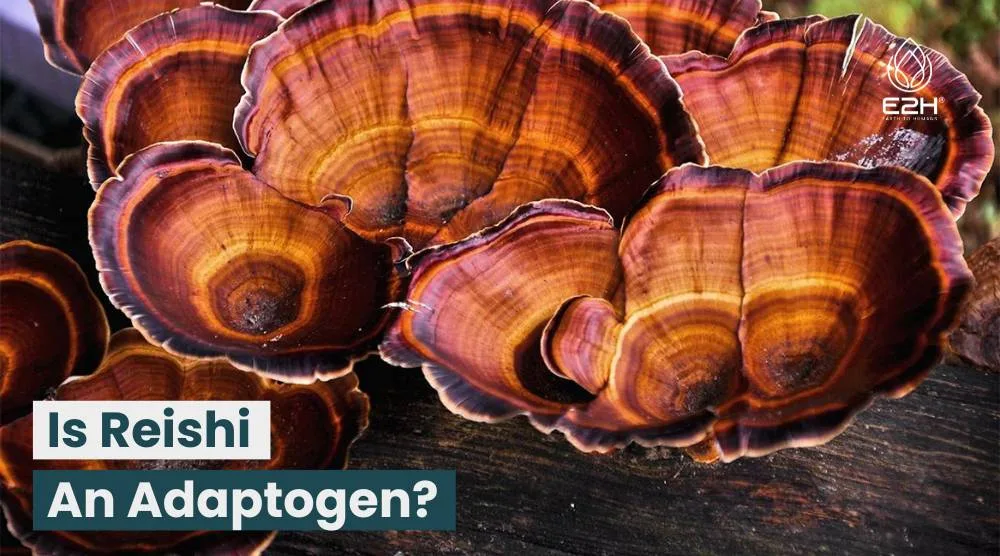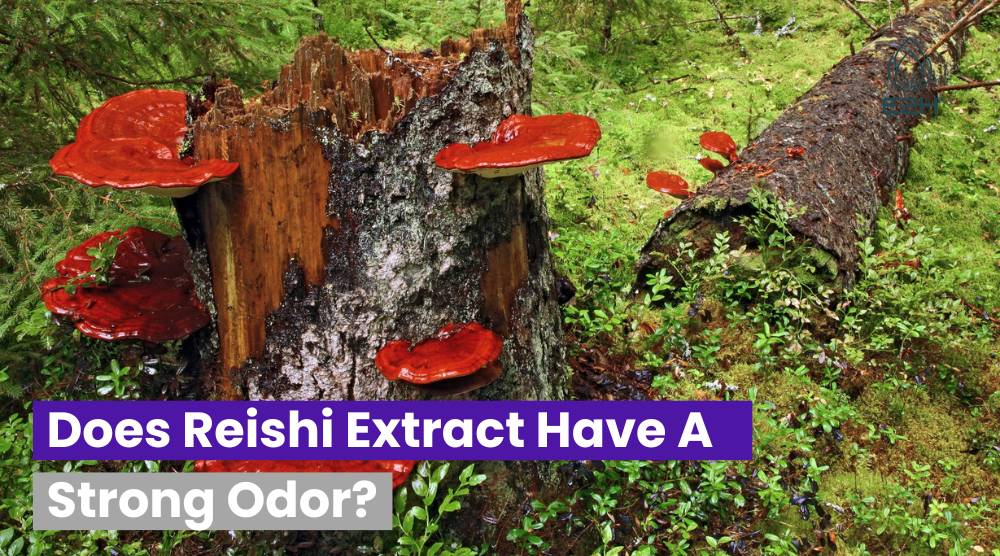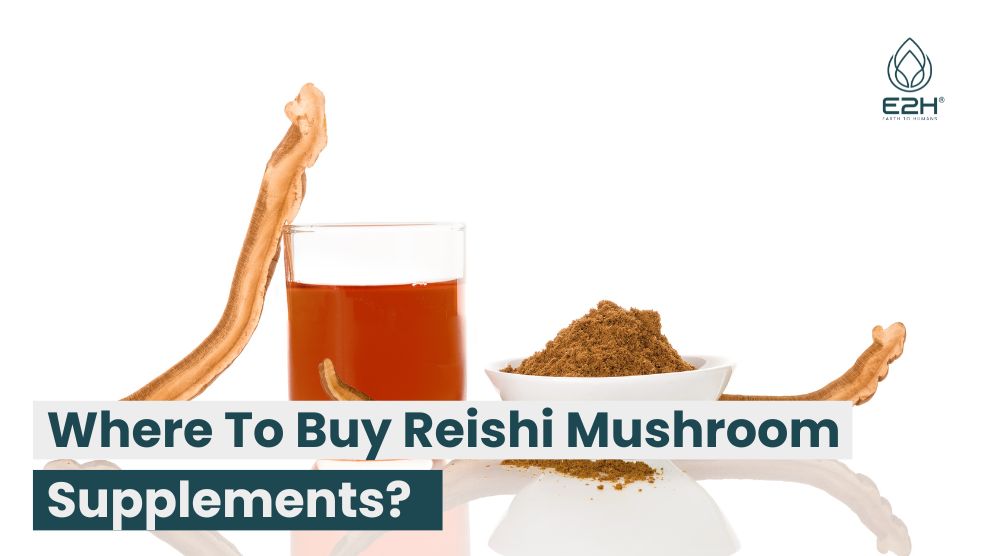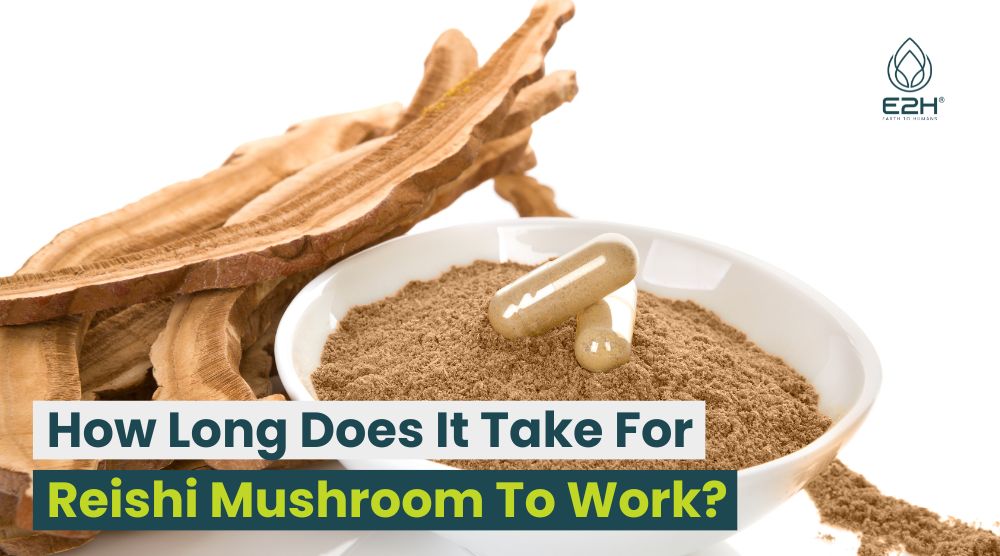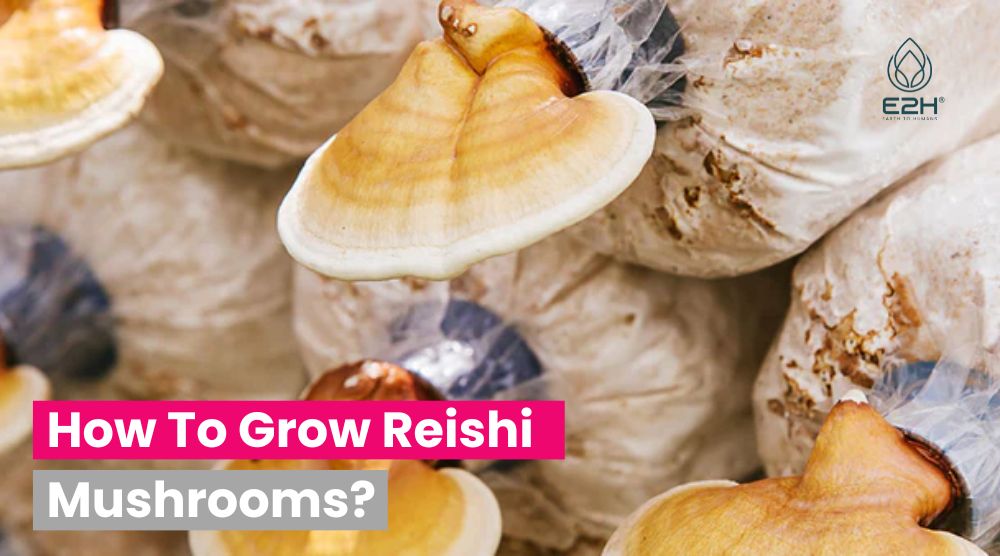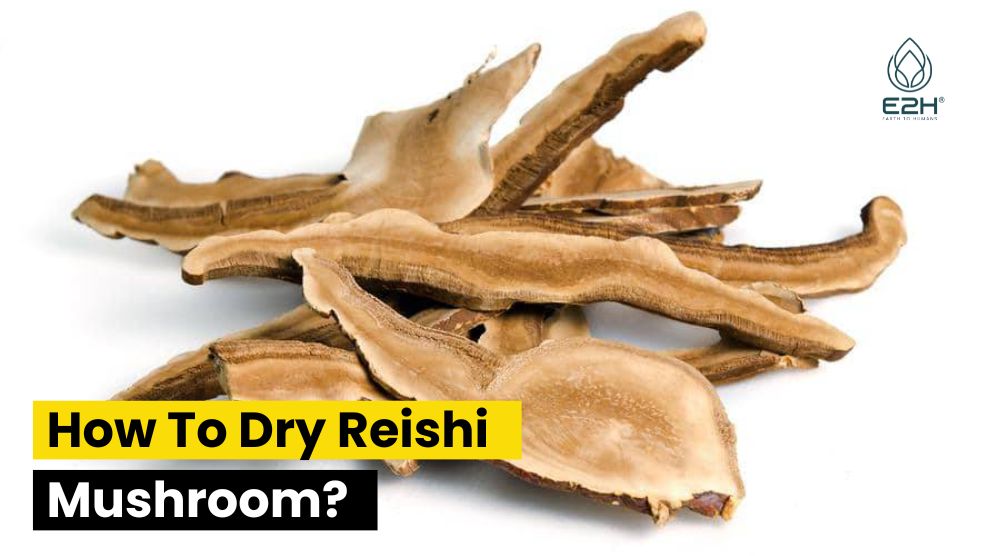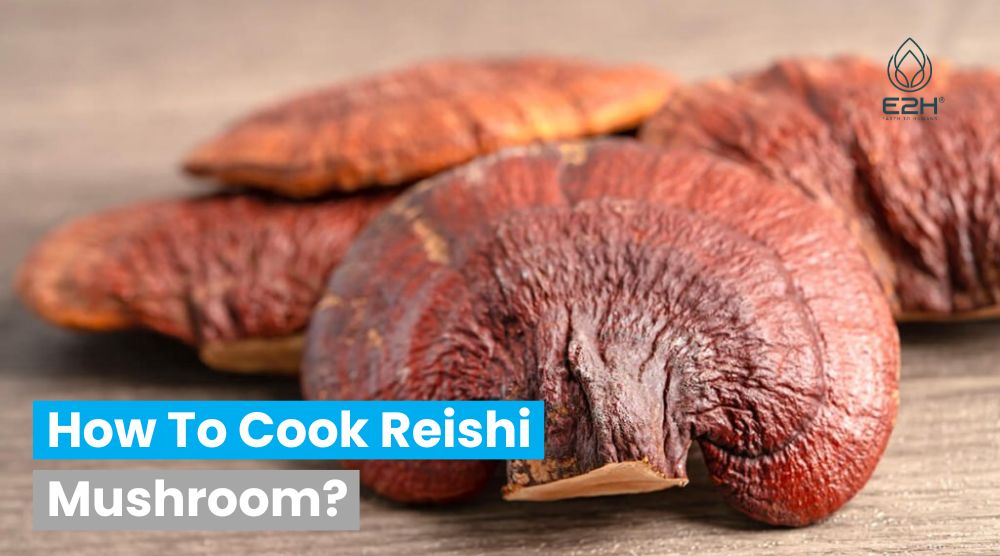Is Reishi An Adaptogen: Yes, Reishi is considered an adaptogen, helping the body adapt to stress.
To learn more about its benefits and how it supports overall well-being, explore the fascinating world of Reishi in the following paragraphs.
Is Reishi Considered An Adaptogen In Herbal Medicine?
Yes, indeed. the Reishi mushroom, scientifically known as Ganoderma lucidum, is recognized in herbal medicine as an adaptogen. Adaptogens are natural substances that assist the body in adapting to stress and maintaining balance. Reishi’s adaptogenic properties contribute to its reputation as a potent medicinal mushroom.

In traditional herbal medicine, Reishi has been used for centuries, particularly in Eastern cultures, for its numerous health benefits. It contains bioactive compounds, such as polysaccharides and triterpenoids, which are believed to play a role in its adaptogenic effects.
Research indicates that Reishi may help modulate the immune system, reduce inflammation, and support overall well-being. Its adaptogenic nature extends to stress management and energy being, promoting a harmonious response to various stressors.
What Are The Defining Characteristics Of An Adaptogen, And Does Reishi Meet These Criteria?
| Characteristic | Definition | Reishi’s Compliance |
|---|---|---|
| Non-Specific Action | Adaptogens act on multiple systems in the body, providing a generalized response to stressors. | Reishi demonstrates non-specific action, affecting various physiological processes to enhance the body’s adaptive capabilities. |
| Normalizing Influence | Adaptogens help maintain homeostasis, balancing physiological functions without pushing the body into overactivity. | Reishi’s normalizing influence is observed in studies indicating its ability to modulate immune responses and maintain overall balance in the body. |
| Non-Toxic and Safe | Adaptogens should be safe for long-term use and not cause harm or toxicity even with prolonged consumption. | Reishi is generally considered safe for consumption, with rare adverse effects reported. However, individual reactions may vary, and consultation is advised. |
Are There Specific Adaptogenic Properties Associated With Reishi?
Specific Adaptogenic Properties Associated with Reishi:
- Immunomodulation: Reishi contains bioactive compounds that may enhance immune function, making it an effective immunomodulator.
- Anti-inflammatory: The triterpenoids found in Reishi exhibit anti-inflammatory properties, contributing to its role in stress response.
- Stress Management: Reishi’s adaptogenic nature is evident in its ability to help the body manage and adapt to various stressors, promoting overall resilience.
How Does Reishi Compare To Other Well-known Adaptogenic Herbs?
When comparing Reishi to other well-known adaptogenic herbs such as Ashwagandha, Rhodiola, and Holy Basil, several factors come into play. Each herb has its unique profile of bioactive compounds, influencing the body’s stress response differently. Reishi stands out for its polysaccharides and triterpenoids, contributing to its immunomodulatory and anti-inflammatory properties.
While Ashwagandha is renowned for its stress-relieving effects, Rhodiola excels in combating fatigue, and Holy Basil exhibits antioxidant and anti-anxiety properties. The choice among these adaptogens depends on individual preferences and health goals.
Can Reishi Help The Body Adapt To Stress And Promote Overall Resilience?
Reishi has demonstrated its efficacy in helping the body adapt to stress and fostering overall resilience. Its adaptogenic nature, supported by research, indicates a positive impact on various physiological processes, including immune modulation and anti-inflammatory responses.

By promoting balance within the body, Reishi contributes to a harmonious adaptation to stressors, making it a valuable addition to wellness routines. Regular consumption of Reishi may support the body’s ability to cope with stress and enhance overall resilience, aligning with its reputation as a revered adaptogenic herb.
Are There Scientific Studies Supporting The Classification Of Reishi As An Adaptogen?
Several scientific studies substantiate Reishi’s classification as an adaptogen. Research has highlighted its ability to modulate the stress response, demonstrating non-specific actions on various physiological systems.
Studies exploring its impact on the immune system, cortisol levels, and overall stress adaptation contribute to the robust evidence supporting Reishi as an adaptogen. These findings collectively underscore the herb’s potential in promoting resilience and well-being in the face of stressors.
What Mechanisms Are Involved In Reishi’s Potential Adaptogenic Effects?
The potential adaptogenic effects of Reishi are attributed to its rich composition of bioactive compounds. Key mechanisms include:
- Immunomodulation: Reishi’s polysaccharides stimulate immune function, aiding the body in responding to stress-related challenges.
- Anti-Inflammatory Properties: Triterpenoids found in Reishi exhibit anti-inflammatory effects, supporting a balanced stress response.
- Neuroendocrine Regulation: Reishi may influence the endocrine system, helping regulate stress hormones like cortisol.
Are There Different Strains Or Types Of Reishi With Varying Adaptogenic Properties?
Yes, indeed. Reishi comprises various strains or types, each exhibiting subtle differences in bioactive compounds, leading to varying adaptogenic properties. For instance, Ganoderma lucidum, Ganoderma sinense, and Ganoderma lingzhi are different species with distinct chemical compositions. While the overarching adaptogenic nature remains, these variations may result in differences in potency and specific health benefits.
Can Reishi Be Used In Combination With Other Adaptogenic Mushrooms?
Absolutely. Combining Reishi with other adaptogenic mushrooms can create a synergistic effect, enhancing the overall adaptogenic potential. Popular combinations include Reishi with Chaga or Cordyceps, leveraging their unique properties.
This blend provides a comprehensive approach to stress adaptation, targeting different physiological pathways. The complementary actions of various adaptogens in combination offer a more robust and balanced support system for the body’s resilience against stressors. Experimenting with different combinations allows individuals to tailor their adaptogenic intake based on personal preferences and health goals.
How Long Does It Take For Someone To Experience The Adaptogenic Effects Of Reishi?
The onset of adaptogenic effects from Reishi can vary among individuals. Generally, noticeable effects may be experienced within a few weeks of consistent use. However, subtle benefits, such as improved mood and resilience to stress, can sometimes be observed sooner. Long-term use often amplifies these effects, as adaptogens like Reishi work gradually to modulate the body’s stress response.
Are There Specific Dosages Recommended When Using Reishi As medicinal mushrooms?
Dosages for medicinal mushrooms, including the Reishi mushrooms, vary based on factors like individual health, product form, and concentration. Typical dosages range from 1 to 2 grams of powdered Reishi per day or 1 to 2 milliliters of Reishi tincture.

For concentrated extracts, lower doses may suffice due to their potency. It’s crucial to start with lower doses and adjust gradually while monitoring individual responses. As always, consulting with a healthcare professional is advisable before incorporating any new supplement into one’s routine.
Can Functional mushrooms Be Safely Used On A Daily Basis?
Yes, functional mushrooms, including Reishi, are generally safe for daily use. They are recognized for their adaptogenic and nutritional properties. However, it’s crucial to adhere to recommended dosages and be mindful of individual responses.
Start with lower doses and gradually increase as needed. The safety profile of functional mushrooms is supported by their historical use in traditional medicine and modern research. Incorporating a variety of functional mushrooms into a balanced diet can provide diverse health benefits. As with any supplement, moderation is key, and individuals may consider rotating mushroom types for a more comprehensive approach to well-being.
FAQs For ‘Is Reishi An Adaptogen?’
Is Reishi considered an adaptogen?
Yes, Reishi is classified as an adaptogen, aiding the body in stress adaptation and promoting energy boost overall well-being.
What sets Reishi apart as an adaptogen?
Reishi’s unique polysaccharides and triterpenoids contribute to its adaptogenic properties, offering a holistic approach to stress management.
How long until one experiences Reishi’s adaptogenic effects?
Individual responses vary, but noticeable effects may emerge within a few weeks of consistent use, with benefits often increasing over time.
Can Reishi be combined with other adaptogens for enhanced benefits?
Certainly, combining Reishi with other adaptogenic and mushrooms may also creates a synergistic effect, enhancing overall adaptogenic potential and diverse health benefits.
Are there any safety considerations for daily use of Reishi as an adaptogen?
When used within recommended dosages, Reishi is generally safe for daily consumption, supporting long-term well-being and stress resilience.
Conclusion
Reishi’s role as an adaptogen offers a natural pathway to stress resilience. Its rich history in traditional medicine aligns with scientific validation, highlighting its unique benefits. Whether you’re new to adaptogens or familiar with their advantages, incorporating Reishi into your routine may contribute to a balanced and adaptive well-being.
